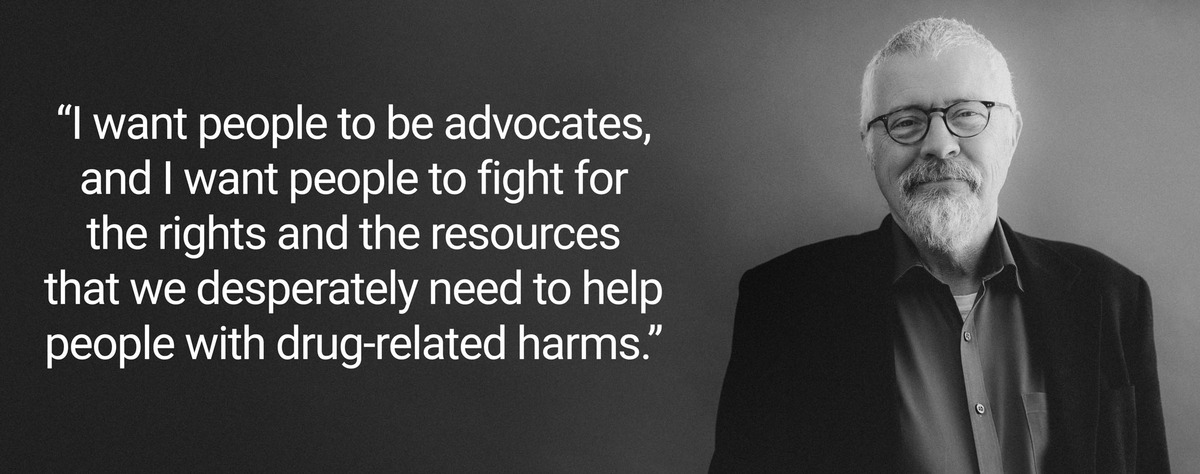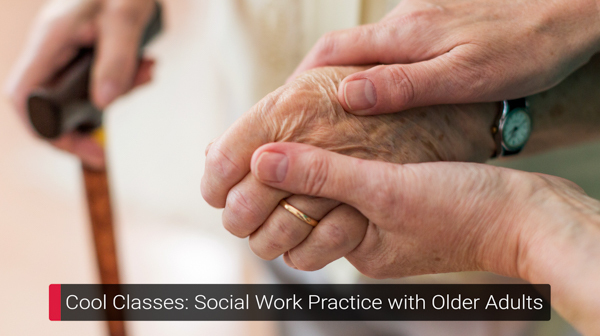- Future Students
- Current Students
- Faculty
- Staff
- Alumni
- Others
Meet Your Professor: Dennis Long wants students to rethink addiction

Throughout his 40 years of working in addiction services, Dennis Long has been fighting to end stigma and improve resources for those with drug-related problems. As an instructor in the Community Social Services program, Long wants his students to think critically about addiction.
“I want to explode mythology,” said Long, who teaches University of Guelph-Humber’s “Mental Health and Addictions” course. “I start my course saying pretty much everything you know about addiction is incorrect. Now, let's start there and rebuild your thoughts about this.”
Long is the former executive director of Breakaway Addiction Services, an agency he founded in 1989. Since retiring from that role, he now teaches mental health and addictions at the University of Guelph-Humber, Humber College and Georgian College.
For Long, teaching is a way he can help prepare future social service workers with a better understanding about addiction.
“One of the reasons I teach at the University of Guelph-Humber is to get my students to think of their role as they move into the field,” Long said. “I want people to be advocates, and I want people to fight for the rights and the resources that we desperately need to help people with drug-related harms.”
Dismantling misconceptions
After working as a child and youth worker and hospital social worker, Long began his career in addiction services at the Addiction Research Foundation, a predecessor to the Centre for Addiction and Mental Health (CAMH). Long has always been interested in understanding people’s relationships with drugs.
“What fascinates me about the field is, first off, why do people use drugs? There's no real clear answer to that,” said Long. “And why is it that we get so concerned about people who develop opiate-related problems, as an example, and less so about people who develop alcohol problems?”
“There will never be a unified theory of why people develop drug-related problems, but we can get our heads around using things like the social determinants of health to begin to understand more effectively how we can deal with this,” Long added.
Amidst Canada’s overdose crisis, Long emphasized there is an urgent need to overcome misconceptions about addiction and create more accessible resources.
“Drugs are not bad, and they are not good. They are just drugs. It's a substance and how we use it becomes the problem,” Long said. “We still don't have the resources on the ground to deal with people who are struggling with drug problems and to effectively counter the overdose crisis. We have to really understand the social, cultural and economic components of drug-related problems.”
Towards dialogue and change
Long is glad to see increased education around mental health and addiction. The next step, he said, is to reframe how these topics are discussed in the classroom.
“When I went to social work school, I don't think I had one course talking about drugs and alcohol. We've moved from that. That's good,” Long said. “But if we're going to teach people about drugs and alcohol, let's move away from the traditional approach and begin to make people think outside the box about this.”
For Long, it is important that his classroom is a space where his students can discuss their experiences and opinions. In fact, those are often his favourite moments while teaching.
“I love being in the class with students and talking to them, listening to their ideas, challenging their ideas and having them challenge mine,” Long said. “In some cases, they’re right and I’m wrong—and I’m perfectly okay with that. I’ve never been one to say, ‘Well, I’m the professor so I know everything.’ I don’t. Talk to me about your experience. Tell me what it’s like.”
By opening a dialogue and challenging students to critically examine mental health and addiction, Long hopes his students will be ready to go forward and enact change.
“We've come a long way, but we've got so much farther to go,” Long said. “I want them to understand that the biggest problem with both mental health and addictions is not the behaviour, but the stigma attached to the behavior. We're beginning to think more about how we can treat people with these kinds of problems in a humane, caring and non-stigmatizing way.”







